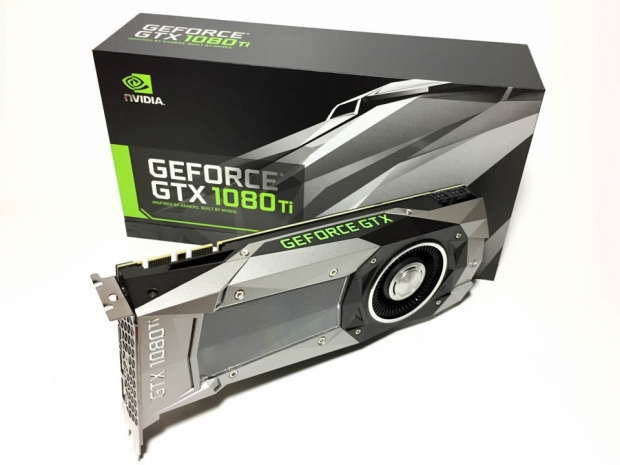Index
- Nvidia Geforce GTX 1080 Ti review
- GPU and memory overview
- Specifications, packaging and hardware overview
- Test Setup
- Results – Nvidia Vulkan API demo
- Results – Cinebench R15
- Results – Civilization VI
- Results – Just Cause 3
- Results – No Man's Sky
- Results – Far Cry 4
- Results – 3DMark + Time Spy
- Results – Unigine Heaven 4.0 Benchmark
- Overclocking
- Conclusion
- All Pages
No Man’s Sky
When No Man’s Sky made its debut in August 2016, it received mixed reception from critics who both praised the technical elements of its procedurally-generated universe, and were concerned that some of its advertised features were not available in the final game. Some have considered it to have a similar impact on the game industry as Minecraft did several years back, though others noted that it was burdened with “expectations” from the start. Regardless of a critic’s opinion of the met and missed expectations of a highly explorational, universe-sized sandbox, the game consumes a sizable amount of system resources and is nevertheless a great reference point for benchmarking the latest graphics cards using the OpenGL API.
Results – 3840x2160p
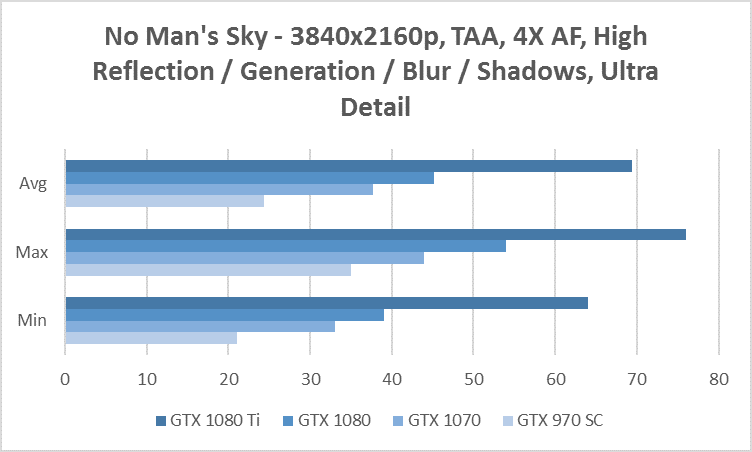
In the default clock results at 4K, the Geforce GTX 1080 Ti gets an average of 69.4fps, followed by the GTX 1080 at 45.2fps, the GTX 1070 at 37.7fps, and the GTX 970 SC at 24.4fps.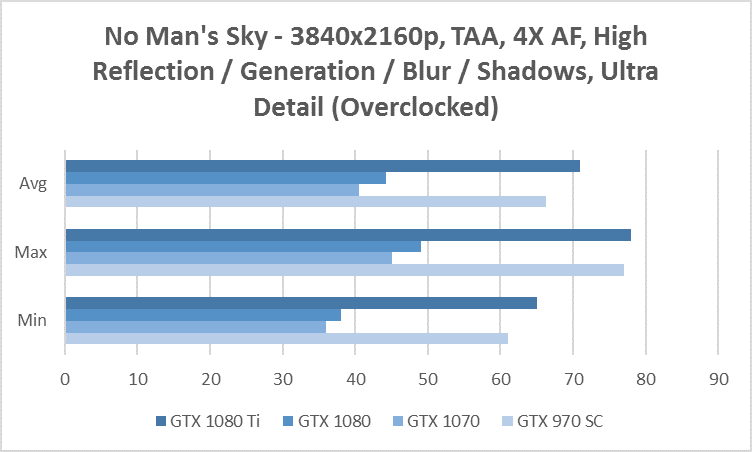
In the overclocked results at 4K, the Geforce GTX 1080 Ti gets an average of 70.9fps, followed by the GTX 1080 at 44.3fps, the GTX 1070 at 40.5fps, and the GTX 970 SC at 24.4fps. Not much of a difference here between the two clockspeed sets.
Results – 2560x1440p
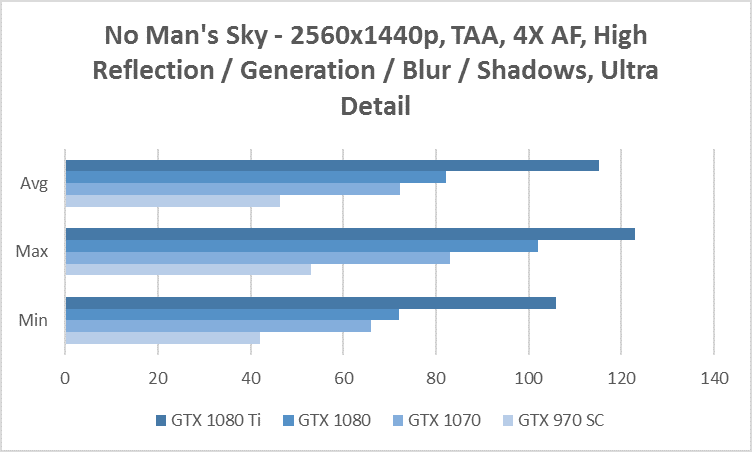
In the default clock results at 1440p, the Geforce GTX 1080 Ti gets an average of 115.2, followed by the GTX 1080 at 82.1fps, the GTX 1070 at 72.2fps, and the GTX 970 SC at 46.3fps.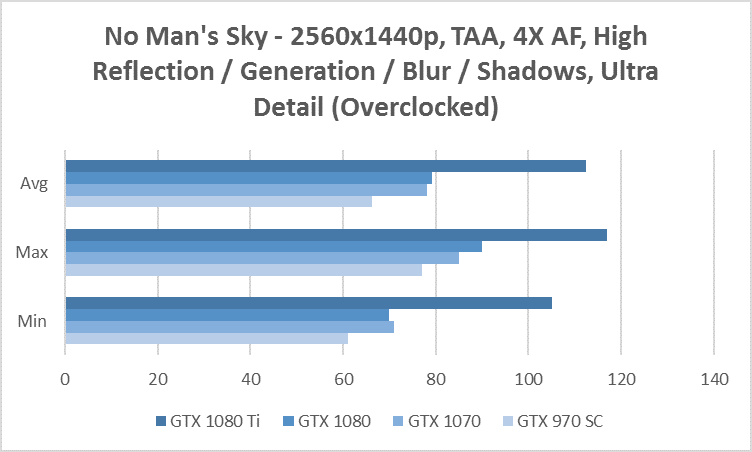
In the overclocked results at 1440p, the Geforce GTX 1080 Ti gets an average of 112.4fps, followed by the GTX 1080 at 79.1fps, the GTX 1070 at 78.1fps, and the GTX 970 SC at 46.3fps. Only the GTX 1070 sees a difference in this run, though possibly due to some procedurally-generated variability.
Results – 1920x1080p
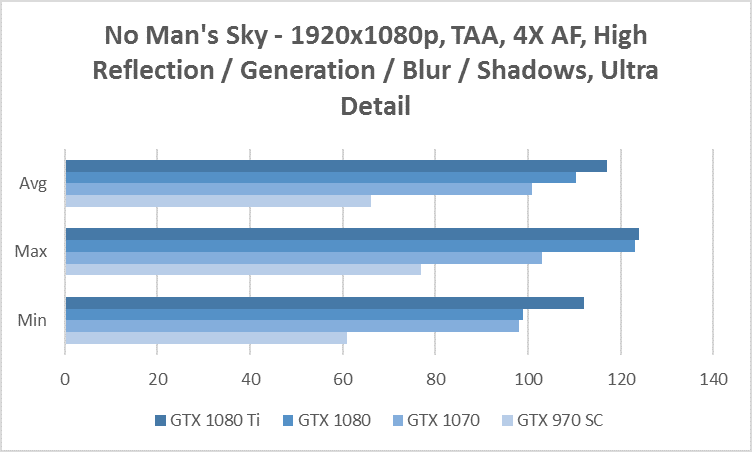
In the default clock results at 1080p, the Geforce GTX 1080 Ti gets an average of 117.1fps, followed by the GTX 1080 at 110.4fps, the GTX 1070 at 100.9fps, and the GTX 970 SC at 66.2fps.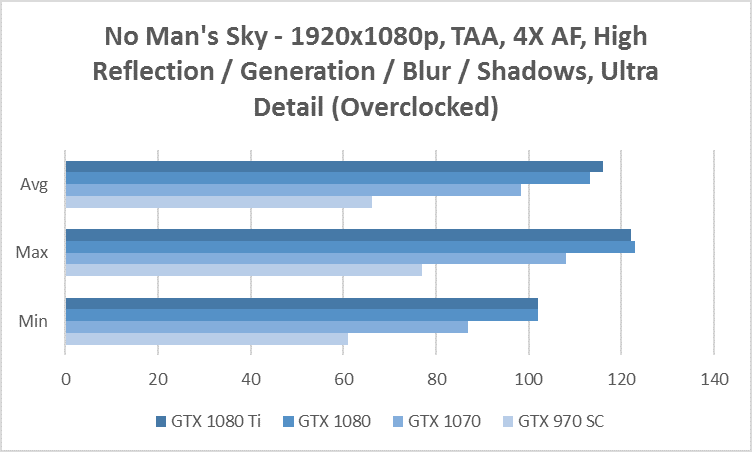
In the overclocked results at 1080p, the Geforce GTX 1080 Ti gets an average of 115.9fps, followed by the GTX 1080 at 113.3fps, the GTX 1070 at 102.2fps, and the GTX 970 SC at 66.2fps. Again, there is not much of a difference to be made when overclocking, at least for this game.

